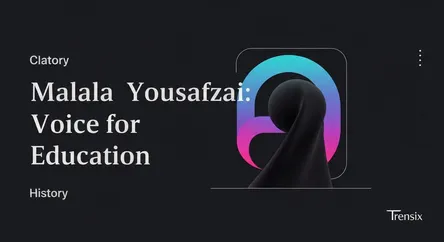History
Malala Yousafzai: A Voice for Education

The story of Malala Yousafzai, the Pakistani activist who survived a Taliban attack to become a global symbol for the right to education.
What is it?
Malala Yousafzai is a Pakistani human rights advocate known for her activism for female education. Born in Swat Valley, she began blogging for the BBC under a pseudonym in 2009, detailing life under Taliban rule and their ban on girls attending school. On October 9, 2012, a Taliban gunman shot her in the head in an assassination attempt for her activism. She survived the attack and was moved to Birmingham, England for rehabilitation. In 2014, at age 17, she became the youngest-ever Nobel Prize laureate for her "struggle against the suppression of children and young people and for the right of all children to education".
Why is it trending?
Malala remains a powerful and relevant figure in global conversations about human rights and education. Through her non-profit organization, the Malala Fund, she continues to advocate for quality education for all girls. She is a UN Messenger of Peace and a prominent speaker, using her platform to meet with world leaders and highlight the social and economic impact of educating girls. Her story, detailed in her memoir "I Am Malala," continues to inspire people worldwide, keeping her a constant presence in media and humanitarian circles.
How does it affect people?
Malala Yousafzai's activism has had a profound global impact. Her story brought international attention to the plight of girls denied education in many parts of the world. In Pakistan, her shooting led to the ratification of the country's first Right to Free and Compulsory Education Bill. The Malala Fund actively supports education projects in several countries, investing in local educators and advocates to empower girls and future female leaders. She has become an international symbol of peaceful protest and the enduring fight for every child's right to learn, inspiring countless individuals to stand up for their rights.